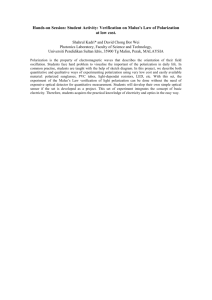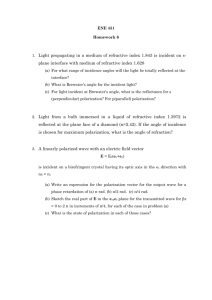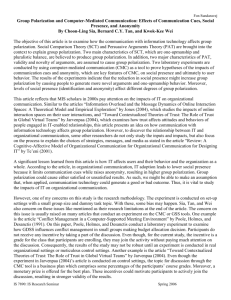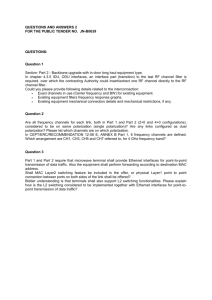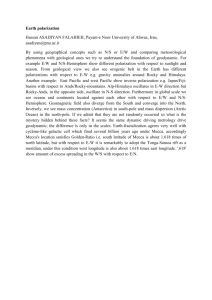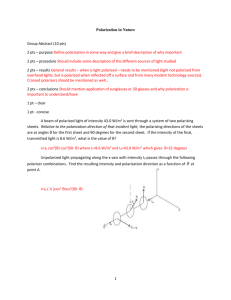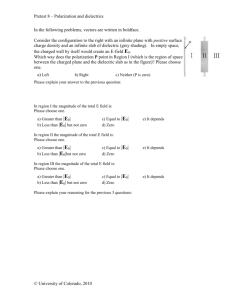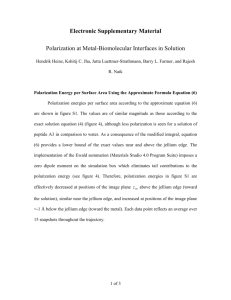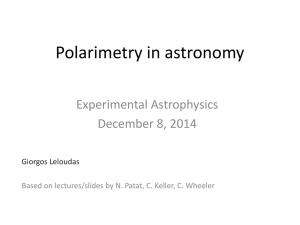A practical method for on-orbit estimation of polarization response of
advertisement
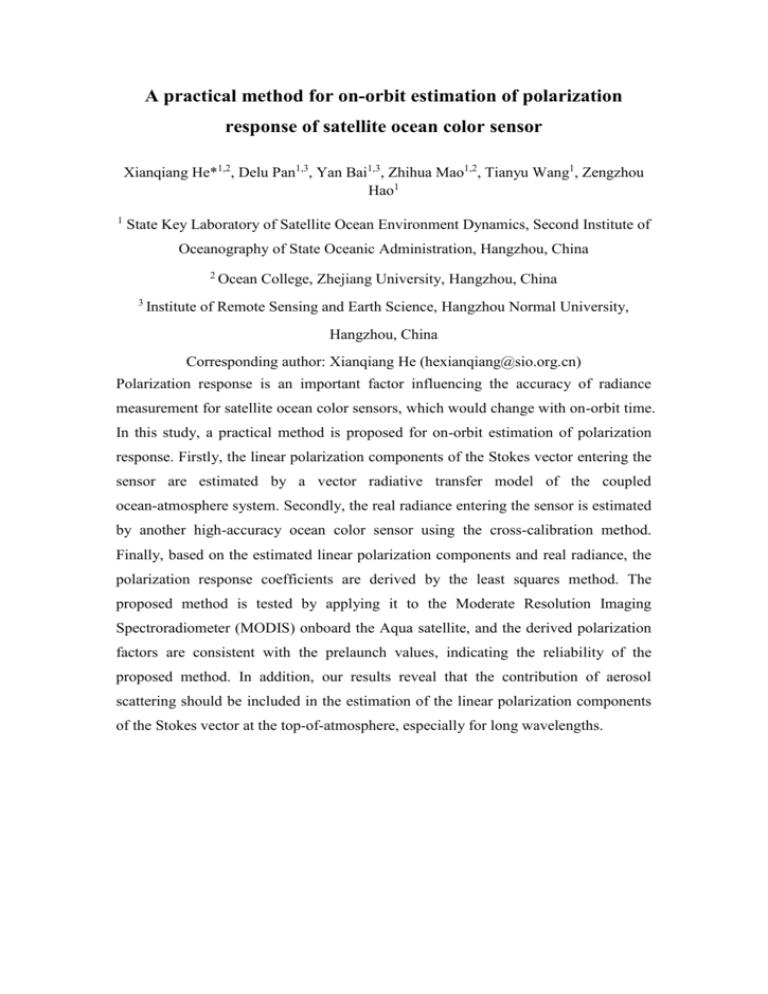
A practical method for on-orbit estimation of polarization response of satellite ocean color sensor Xianqiang He*1,2, Delu Pan1,3, Yan Bai1,3, Zhihua Mao1,2, Tianyu Wang1, Zengzhou Hao1 1 State Key Laboratory of Satellite Ocean Environment Dynamics, Second Institute of Oceanography of State Oceanic Administration, Hangzhou, China 2 3 Ocean College, Zhejiang University, Hangzhou, China Institute of Remote Sensing and Earth Science, Hangzhou Normal University, Hangzhou, China Corresponding author: Xianqiang He (hexianqiang@sio.org.cn) Polarization response is an important factor influencing the accuracy of radiance measurement for satellite ocean color sensors, which would change with on-orbit time. In this study, a practical method is proposed for on-orbit estimation of polarization response. Firstly, the linear polarization components of the Stokes vector entering the sensor are estimated by a vector radiative transfer model of the coupled ocean-atmosphere system. Secondly, the real radiance entering the sensor is estimated by another high-accuracy ocean color sensor using the cross-calibration method. Finally, based on the estimated linear polarization components and real radiance, the polarization response coefficients are derived by the least squares method. The proposed method is tested by applying it to the Moderate Resolution Imaging Spectroradiometer (MODIS) onboard the Aqua satellite, and the derived polarization factors are consistent with the prelaunch values, indicating the reliability of the proposed method. In addition, our results reveal that the contribution of aerosol scattering should be included in the estimation of the linear polarization components of the Stokes vector at the top-of-atmosphere, especially for long wavelengths.
